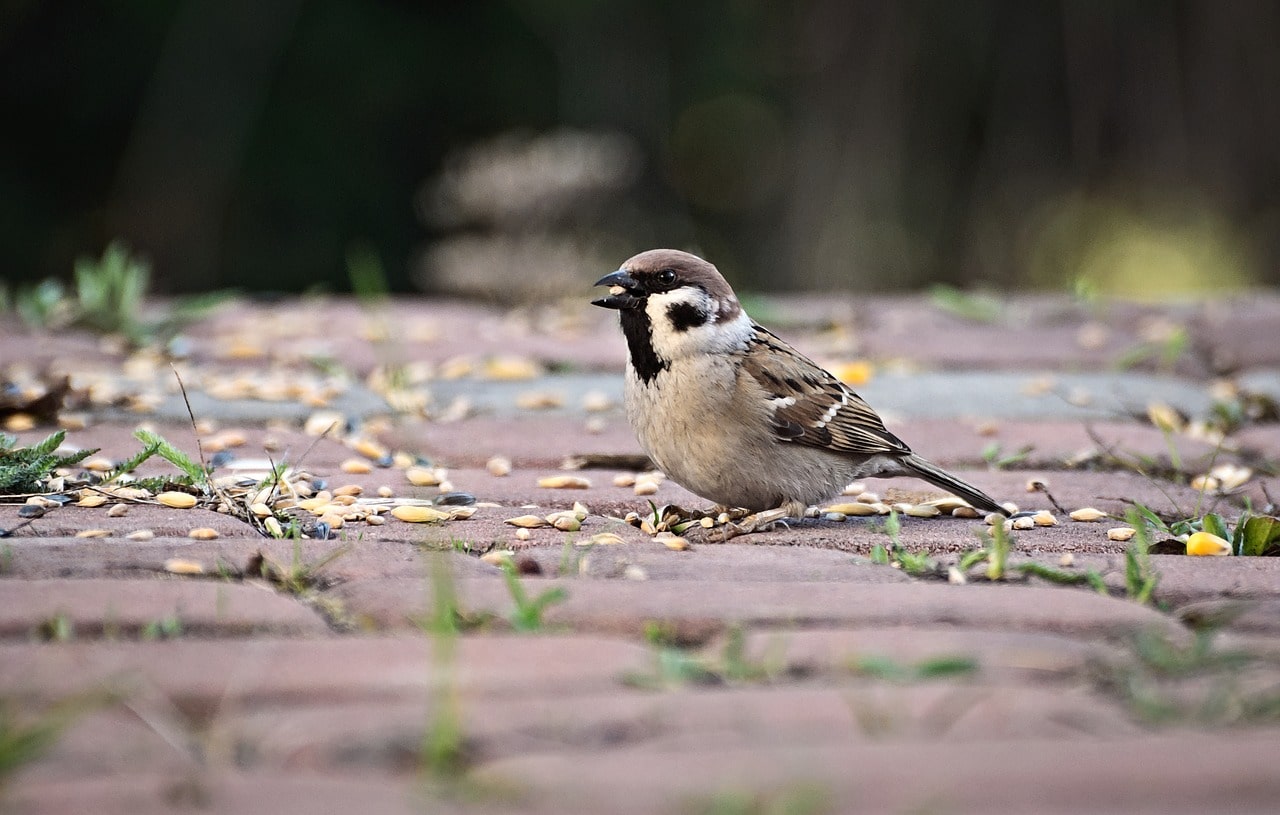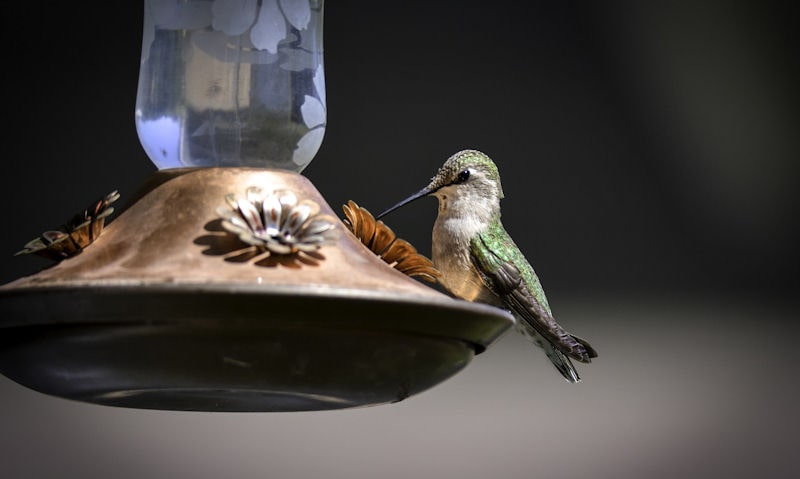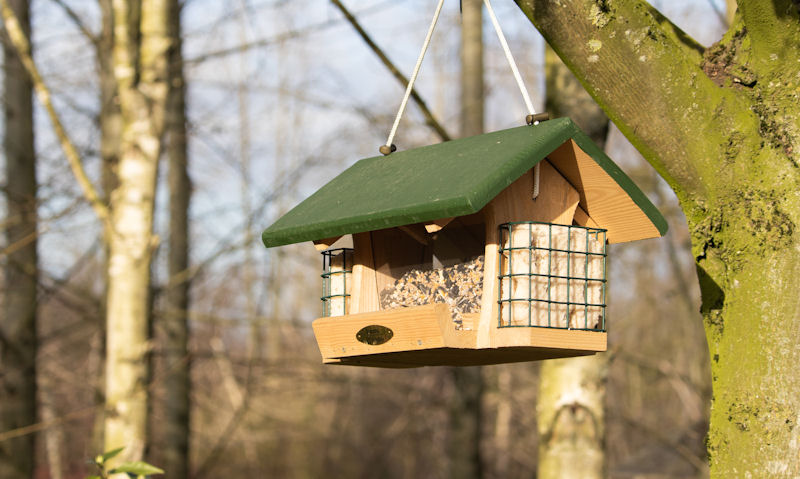Can wild birds eat oats
Oats don't appear to have much nutritional value as first glance though this grain can provide birds much needed protein while restoring lost energy as they forage.
Birds can eat oats because its closely linked to cultivated or waste grain wild birds eat in the wild. Oats are full of protein thus are an important food group come winter. Ground eating birds such as Cardinals, Blue Jays, Blackbirds and Sparrows eat oats - and as ground eating birds will prefer to feed on the lawn.
I'd admit the kind of birds oats can attract are what I would say are no most peoples favorites, though few birds who do eat oats can be of interest for sure.
As ground feeding birds they would prefer oats throw over the lawn, providing its seen.
Offer oats to these ground eating birds on the lawn, on top of a platform bird feeder, yet never in a restricting hanging bird feeder.
Oats is only one food group that is part of their diet in the wild, thus to mix oats in with seeds, nuts and potentially dried mealworms can guarantee a balanced meal.
Uncooked oats it must be with no possibility of using milk or water to soften oats up.
What will happen is the oats will be eaten for sure with the possibility of wet oats drying on a birds beak like cement. Never cook oats then when dry oats or grain goes down well with a few familiar faces in the yard.
Its quite possible oats can be ignored if an abundance of other popular bird feed remains available. I would recommend mixing oats in with seeds or nut mixes as oats of any kind tend to be part of these mixes.
What you can feed birds instead of bird seeds is oats, grain or even cereal - providing it remains in dry form with no milk or water added.
And that means oats cannot get wet in the yard as it can become dangerous for birds to feed on - and as mentioned oats will become glutinous
Birds can eat oats
Backyard birds can eat oats with many doing so without realizing it, as some type of oats can be part of a wild birds seed mix.
Birds feed on grain similar to oats in the wild as cultivated grain or waste grain, which means they feed on any leftovers near the processing plant.
Oats are not really a big part of a wild birds diet, although it is made up in a large part if other favorites are unavailable at the time, such as seeds.
Of the few birds who eat oats, its probably in wintertime when most of it is consumed, though it can be fed to birds all year round.
Oats can be fed to birds too the feed common backyard birds who do eat them, but they must be served as is; thus raw with no milk or water as it can harden on their beak - as well as milk being bad for our birds.
Similarly, uncooked porridge oats, oat bran, steel cut oats and quick oat varieties can safely be fed to wild birds.
Favored by grain eating birds
Now I will say with opportunities to feed wild birds a series of oats in your backyard, those birds that do eat oats may not be the species you'd wish to attract.
Few of these birds can eat bread or kitchen scraps, with a few exceptions.
What birds have in common that eat oats is that they are ground eating birds, and so to primarily eat seeds in the wild.
Birds that will eat oats in your yard can include: Blue Jay, Common Grackle, Eurasian Tree Sparrow, House Sparrow, Mourning Dove, Northern Cardinal and Red-Winged Blackbird.
As you can see with the exception of Northern Cardinals or Blue Jays who are a joy to have in the yard - Pigeons is a species you may want to avoid.
Of course Sparrows are there to be sure no oats goes to waste, with any Red-winged Blackbirds feeding on oats if this bird is near by.
Mix oats with seed mixes
You can feed only raw oats or processed oats to wild birds if it can be seen, which in turn will lead to birds eating some of it.
However oats by their own may not be an exciting prospect if birds are used to other reliable wild bird feed in use, such as seeds, nuts or dried mealworms.
What you can do then is mix up your oats with seed mixes or nuts, or use a bit of everything as birds can forage through the mix taking what they like - while throwing what is not - or if is not part of their natural diet.
Oat eating birds are primarily made up of seed eating birds, thus to mix up oats in seeds will guarantee some is eaten.
If you didn't know already common wild bird seed mixes tend to be mixed up in other things such as cracked corn, millet and of course oats of some kind.
Perfect then as its something seed-eating birds are fed on if using seed mixes in bird feeder.
Fresh oats out of the box may not last very long if added to a bird feeder, thus an open top platform bird feeder should be used - or throw some over the ground if eaten up on on a single fine weather day.
Feed oats to ground birds only
Oat eating birds happen to be only those that are primarily ground feeding birds only, thus a bird feeder of any kind may not be needed.
Feed oats to Blue Jays or Northern Cardinals on the ground, as these bigger than normal backyard birds won't be restricted if fed to them in a feeder.
Sparrows will eat oats spilled on the ground while preferring to jump on a platform bird feeder if oats are only available their.
Common Grackles will struggle to use any bird feeder with Blackbirds seen to feed on the ground only.
While ground feeding birds will be your target for oats, remember Pigeons are another bird that will eat oats. Pigeons are not a bird most people want to feed as the Pigeon problem gets worse overtime.
I will then stop offering oats to backyard birds until the Pigeon issue goes away.
Pigeons have to eat too so there's certainly no harm in continuing to feed birds oats, as it can be available to all those mentioned without cutting them off due to one problem bird.
Blue Jays, the Common Grackle, Sparrow, Mourning Dove, Northern Cardinals and Red-winged Blackbirds are ground feeding birds, and therefore like oats on the ground.
Cereal alternative option
While oats makes for a great source of protein, thus are useful for foraging birds in the winter, alternatives can be offered to these same bird species.
What birds eat oats are the same birds who can eat any kind of dry cereal, providing its not covered in milk as it can make birds ill.
Oats can become breakfast oatmeal among many other kinds, thus this oatmeal can produce a glue-like texture that can harden on a birds beak. Offer birds oats and cereal if its left dry.
Cheaper yet less fuss than oats is a common kitchen scrap like cereal.
Cereal can quickly deteriorate once put out in the yard for hungry bird so much like using oats - thus you'd need to be sure its disposed of on the same day. If birds don't eat the cereal or oats on that day, throw it in the trash.
Similarly, cereal of any kind or brand may only be taken noticed by birds if mixed up with other wild bird food.
You can mix up cereal with oats of course with seed mixes and, or dried mealworms included.
That way you are catering to all birds who eat oats, and therefore cereal who can proceed to be eaten up with anything else that is part of their diet.
To summarize
Common backyard birds can eat a series of oats named or processed in many different ways - that is if its raw or served as oatmeal in a cereal box.
While favoring grain which is eating in the wild, of the few wild birds who do eat oats are Blue Jays, the Common Grackle, Eurasian and House Sparrow, Mourning Dove, Northern Cardinal and Red-winged Blackbird.
If any of these birds are unappealing to you for attracting to your yard then its imperative to delay or stop given birds oats until the nuisance birds disappear.
Oats may go unnoticed if other kinds of wild bird feed is readily available over your lawn or in bird feeders, thus you'd need to make the most of what you got.
By that I mean oats will have to be mixed in with bird seeds which happen to have oats included anyway, with nuts or dried mealworms that can be part of the bird feed mix.
Birds who will eat your oats will only be ground foraging birds only and therefore will prefer oats made available to them in an unobstructed way; thus never put oats in a bird feeder with an open top platform the best option.
What birds eat oats can also feed on random dry breakfast cereal which can act as a booster to oats, which can be used to get birds attention.


